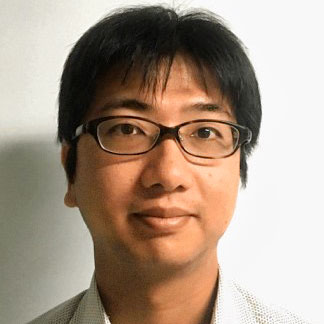Towards three-dimensional atom-by-atom imaging by STEM depth sectioning
 Speaker: Associate Professor Ryo Ishikawa
Speaker: Associate Professor Ryo Ishikawa Affiliation: Institute of Engineering Innovation, The University of Tokyo
Host: Assistant Professor He Qian
Abstract Details:
Since the invention of multi-poles-based aberration correctors, the spatial resolution in electron microscopy has been significantly improved, and observations with sub-angstrom resolution are routinely available. The spatial resolution in scanning transmission electron microscopy (STEM) is now reached 40.5 pm –less than half an angstrom-, which might be sufficient to investigate the local atomic and electronic structures of materials. However, the sub-angstrom resolution is only valid in the projected two dimensions, and the resolution along the axial direction, known as depth resolution, is still far from atomic resolution. Previously, we determined the three-dimensional location of a single dopant using quantitative annular dark-field (ADF) STEM imaging. However, it requires a complex experimental setup and massive image simulations, suggesting we should develop a more flexible and accurate practical method. To realize true three-dimensional atomic resolution in STEM, we have developed large-angle illumination STEM with a Delta-type higher-order aberration corrector. By precisely correcting all the aberrations, we achieved 2.1 nm depth resolution with an illumination angle of 63 mrad at 300 kV. Furthermore, by combining statistical analysis with STEM depth sectioning, we also achieved 3D atomic resolution at the oxide surface.
Join us at NUS Lecture Theatre 1, or through Zoom.
About The Speaker:
Ryo Ishikawa is a Project Associate Professor at the Institute of Engineering Innovation at the University of Tokyo, Japan. He completed his Ph.D. in Materials Science at the University of Tokyo in 2011. Following his postdoctoral position at the University of Tokyo, he moved to Oak Ridge National Laboratory in the USA from 2012 to 2014 and then joined the University of Tokyo as an Assistant Professor. In 2020, he was appointed to the current position at the University of Tokyo. In addition, he had an adjunct appointment in JST-PRESTO (Intelligent Measurement Analysis) from 2018 to 2022.
He received several scientific awards, including the Encouragement Prize from The Japan Institute of Metals (2015), the Albert Crewe Award from the Microscopy Society of America (2016), the Encouragement Prize from The Japanese Society of Microscopy (2018), Honda Memorial Young Research Award (2021) and the Young Scientists’ Award from the Ministry of Education, Japan (2021).
—
To view all the upcoming seminars, you can visit: https://graphene.nus.edu.sg/news-events/events/
You may also Like & Subscribe our following channels below to receive instant notifications for new announcements.
